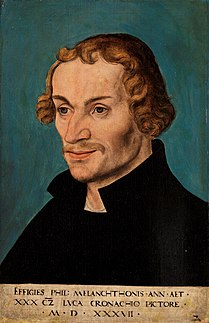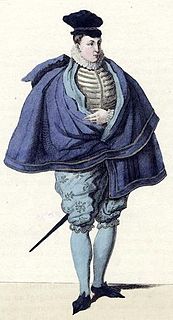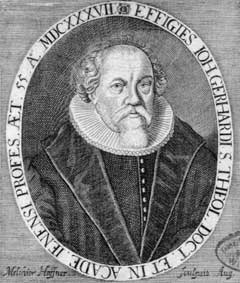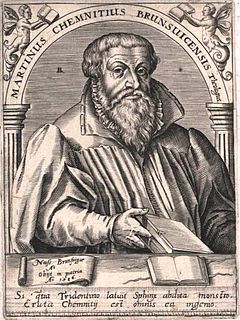Loci Theologici was a term applied by Melanchthon to Protestant systems of dogmatics and retained by many as late as the seventeenth century.
Dogmatic theology is that part of theology dealing with the theoretical truths of faith concerning God and God's works, especially the official theology recognized by an organized Church body, such as the Roman Catholic Church, Dutch Reformed Church, etc. At times, apologetics or fundamental theology is called "general dogmatic theology", dogmatic theology proper being distinguished from it as "special dogmatic theology". In present-day use, however, apologetics is no longer treated as part of dogmatic theology but has attained the rank of an independent science, being generally regarded as the introduction to and foundation of dogmatic theology.
The word was borrowed, as he himself says, from the usage of the classic rhetoricians, in whose works topoi or loci , denote the places or sources from which proofs are deduced. Various systematized indexes of these loci were made from the days of Aristotle, and mere formal categories, such as "person," "nature," or "fortune," were also reckoned under this head. It was the particular task of the rhetorician, however, to trace the concrete case, or "hypothesis," to the general, or "thesis." Thus were evolved loci communes, or arguments which could be applied to many specific cases. The humanistic rhetoricians frequently confused loci communes with simple loci, or general basal concepts. This was especially true of Melanchthon, as is clear from his De rhetorica libri tres (Cologne, 1519), in which he sought to train students for disputation.

Aristotle was a philosopher during the Classical period in Ancient Greece, the founder of the Lyceum and the Peripatetic school of philosophy and Aristotelian tradition. Along with his teacher Plato, he is considered the "Father of Western Philosophy". His writings cover many subjects – including physics, biology, zoology, metaphysics, logic, ethics, aesthetics, poetry, theatre, music, rhetoric, psychology, linguistics, economics, politics and government. Aristotle provided a complex synthesis of the various philosophies existing prior to him, and it was above all from his teachings that the West inherited its intellectual lexicon, as well as problems and methods of inquiry. As a result, his philosophy has exerted a unique influence on almost every form of knowledge in the West and it continues to be a subject of contemporary philosophical discussion.
He accordingly advised them to prepare lists of all possible loci communes, and to enter under the proper rubrics (capita) any examples gathered in the course of their reading. Among theological loci communes he lists "faith," "destruction of the body," "Church," "word of God," "patience," "sin," "law," "grace," "love," and "ceremony." Elsewhere he defines loci communes as "certain general rules of living, of which men are persuaded by nature, and which I might not unjustly call the laws of nature." These two definitions, however, are not clearly distinguished and the discussion of the loci communes is consequently somewhat vague.
In one sense, faith in Christianity is often discussed in terms of believing God's promises, trusting in his faithfulness, and relying on God's character and faithfulness to act. Some of the definitions in the history of Christian theology have followed the biblical formulation in Hebrews 11:1: "the assurance of things hoped for, the conviction of things not seen". As in other Abrahamic religions, it includes a belief in the existence of God, in the reality of a transcendent domain that God administers as his kingdom and in the benevolence of the will of God or God's plan for humankind.

"Christian Church" is an ecclesiological term generally used by Protestants to refer to the whole group of people belonging to Christianity throughout the history of Christianity. In this understanding, "Christian Church" does not refer to a particular Christian denomination but to the "body" of all "believers", both defined in various ways. Other Christian traditions, however, believe that the term "Christian Church" or "Church" applies only to a specific concrete historic Christian institution, e.g. the Catholic Church, the Eastern Orthodox Church, the Oriental Orthodox Churches, or the Assyrian Church of the East).
In a religious context, sin is an act of transgression against divine law. In Islamic ethics, Muslims see sin as anything that goes against the commands of Allah (God). Judaism regards the violation of any of the 613 commandments as a sin.
This criticism applies also to the loci theologici of his famous Loci communes rerum theologicarum (1521), which are primarily basal concepts appearing in the science of theology, to which all in it must be referred. [1] He accordingly begins with his favorite list "God," "one," "triple," and "creation," and closes with "condemnation " and "beatitude." Although this list was derived from Peter Lombard, Melanchthon's treatment is not only more clear than that of his predecessor, but he draws his examples from the Bible instead of from the Church Fathers, and under Pauline influence deduces, in addition to loci communes, certain loci communissimi, such as "sin," "grace," and "law." In view of the long and powerful influence of this book, the result of his failure to give a methodical proof of his series of loci was that Lutheran dogmatics was slow in reaching inherent unity. The term loci theologici gradually came to denote the content, and thus the chief passages of the Bible as included in the individual loci.
Loci Communes or Loci communes rerum theologicarum seu hypotyposes theologicae was a work by the Lutheran theologian Philipp Melanchthon published in 1521. Martin Luther said of it that "Next to Holy Scripture, there is no better book," and its existence is often given as a reason why Luther never wrote a systematic theology of his own. In an overture to the English king, Henry VIII, to gain the English crown as converts to Lutheran protestantism, Philipp Melanchthon provided a dedication to the king in one of his printed editions.

In monotheistic thought, God is conceived of as the supreme being, creator deity, and principal object of faith. The conceptions of God, as described by theologians, commonly include the attributes of omniscience (all-knowing), omnipotence (all-powerful), omnipresence (all-present), and as having an eternal and necessary existence. Depending on one's kind of theism, these attributes are used either in way of analogy, or in a literal sense as distinct properties. God is most often held to be incorporeal (immaterial). Incorporeality and corporeality of God are related to conceptions of transcendence and immanence of God, with positions of synthesis such as the "immanent transcendence". Psychoanalyst Carl Jung equated religious ideas of God with transcendental aspects of consciousness in his interpretation.
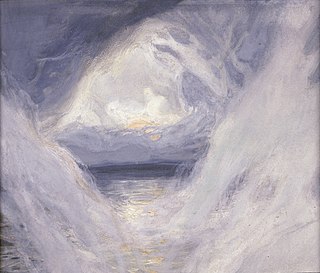
A creation myth is a symbolic narrative of how the world began and how people first came to inhabit it. While in popular usage the term myth often refers to false or fanciful stories, members of cultures often ascribe varying degrees of truth to their creation myths. In the society in which it is told, a creation myth is usually regarded as conveying profound truths, metaphorically, symbolically and sometimes in a historical or literal sense. They are commonly, although not always, considered cosmogonical myths—that is, they describe the ordering of the cosmos from a state of chaos or amorphousness.
For Lutheran theology, Melanchthon's book had the same importance which the work of Peter Lombard possessed for scholasticism. His loci were the subject of commentary as late as Leonhard Hutter, and the term loci communes came to connote any work dealing with the sum of Christian doctrine. Among the Reformed the phrase loci communes was accepted by Wolfgang Musculus (Basel, 1560), Peter Martyr (London, 1576), Johannes Maccovius (Franeker, 1639), and Daniel Chamier (Geneva, 1653). After the middle of the seventeenth century, however, with the rise of a more systematic treatment of dogmatics the term fell into disuse.
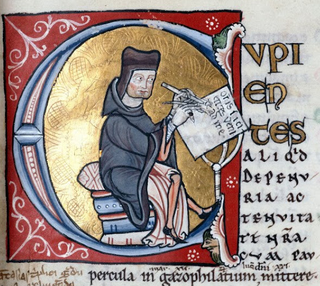
Peter Lombard, was a scholastic theologian, Bishop of Paris, and author of Four Books of Sentences, which became the standard textbook of theology, for which he earned the accolade Magister Sententiarum.

Scholasticism is a method of critical thought which dominated teaching by the academics of medieval universities in Europe from about 1100 to 1700, and a program of employing that method in articulating and defending dogma in an increasingly pluralistic context. It originated as an outgrowth of and a departure from Christian theology within the monastic schools at the earliest European universities. The rise of scholasticism was closely associated with the rise of the 12th and 13th century schools that developed into the earliest modern universities, including those in Italy, France, Spain and England.

Leonhard Hutter was a German Lutheran theologian.

